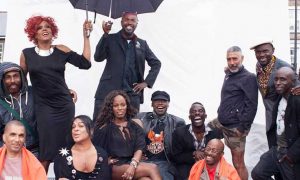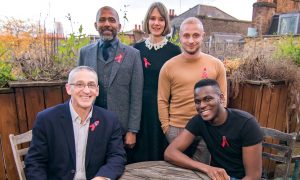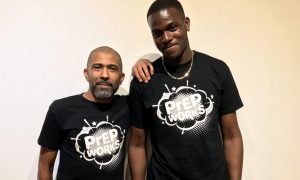Racism and the gay scene

Marc Thompson is a peer mentor project coordinator and outreach worker at Positively UK, a charity that provides peerled support, advocacy and information to young people living with HIV. He is also the co-founder of Prepster.info. Here he discusses the challenges faced by young gay men of colour and how our community and wider society should begin to counter them.
What are the challenges you face with gay and bi BAME men accessing HIV and sexual health services?
I think the issue is to reduce stigma in our communities to get more people to come forward to test for HIV. But also when people are diagnosed positive, making sure we have the right support for them both within the wider HIV community and in the BAME communities as well.
Also looking at support that is culturally specific: the needs of a young black gay man who might be positive might differ slightly to somebody who is white British or a migrant from Spain, so the services need to make sure they’re addressing those needs. In what ways would their needs be slightly different?
Well being a black gay man is different to being a white gay man in terms of the way society is structured. So the fact that as a black gay man I not only have to deal with homophobia, but I have to deal with racism both within the wider community and on the gay scene, so that’s an added layer of stuff that one has to manage in their lives. So if, for example, I’m a positive man and I go on a dating app and somebody says ‘no blacks, no fats, no fems’ and also says you’ve got to be ‘clean’ as well, already that’s an added layer of stigma I’m facing.
Have hook up apps made it easier for people to be casually racist?
Yes.
Have you found it to be a common thing?
Large numbers of BAME men have reported seeing that kind of stuff online and it has an impact on them, that kind of – as you put it – casual racism. I think that people have become aware of it because they’ve been called out on it and so it begins to disappear, and what we then see is a different form taking place. I’m not sure what that is but I think it will play out differently because people adapt to the rules. So they think well actually I can’t say no blacks or no fats, so I’ll say guys who look like this, or I prefer slim guys, so you’re not excluding a group of people, but you still are.
You mentioned to me before that you aren’t a fan of the acronym BAME – why is that?
Because I think it’s a term that includes anyone who’s not white, and we’re not honest about that. It makes you into this ‘other’ group, and when you talk about BME or BAME you ultimately look at a homogenised group. So I’m a black Caribbean man born in Britain; my needs and my experiences are very different to someone who’s emigrated here from Afghanistan, for example, but he’ll be put in the same pot as me. We’re different, but we’re both non-white, so we’re known as the ‘other’. But when you drill down it doesn’t allow you to really look at the nuances. As a society everything other than white is ‘other’ – we see it in the media, in our clubs, in lots of ways.
What’s it like being black, gay and on the scene in 2016?
Well I’m not really on the scene anymore, but what I do observe from friends that are younger than me is that it’s still a challenge, for any young gay man. I think that young BME gay men face the same kind of issues as our white counterparts – a culture that’s built around apps, and we see that our bars and clubs are disappearing. But I think for young BME gay men particularly those social spaces are incredibly important, and that’s why places like Bootylicious and Batty Mama serve an important function for young black people because we don’t necessarily have those spaces where we often see ourselves reflected in clubs. And from the younger people who I encounter I see a lot more mixing, which is great; it’s not as segregated as when I was coming up. My experience of the scene has changed for the better over the years, but certainly when I was coming up it was a very segregated scene and if I as a black man wanted to feel safe and emotionally welcome I would go to a black club. And this is an important point: I still know black men who go to clubs now and are asked at the door ‘You do know this is a gay club?’ I know of men in Manchester recently who went to a club as a group of four and were refused entry, because there was four of them. And I know countless stories of black men being in club who are constantly asked if they sell drugs. Constantly. Imagine what that’s like. I’ve had it done to me countless times.
Another question I have down here is whether you’ve encountered any racism on the scene, and I suppose that perfectly illustrates it, right?
Yeah, absolutely. There’s that, there’s walking into spaces where you are usually the minority and are not necessarily made to feel welcome. The thing is – I love the term you use when you say ‘casual racism’ – most of these people would say ‘there’s not a racist bone in my body’ and they believe that and they probably aren’t racist, but they don’t actively work to disengage and unpick the racism that happens within our communities.
So if you look at the impact of Brexit – how does that impact on race relations within the gay community? So what can black people, white people – everyone – do to improve the situation?
It’s a big question. I think it’s about honest conversation, which is what you’re doing, and I really welcome it. I think there is something about accepting our failings, which I don’t think we’re very good at as a community and as a society. I think one of the most important things we should do is have a good diverse media representation – Asian guys, Latino guys, fat black guys, interracial couples – that’s where I think we should start. So when people see it they think: right, this is possible, this is what it means to be diverse.













